Biggest Mistakes Family Lawyers Make
- At February 20, 2022
- By Miles Mason
- In Family Law
 0
0
What are some of the biggest and most common mistakes family lawyers make? Biggest Mistakes New Family Lawyers Make. Most Common Mistakes Family Law Clients Make.
Q: What are the Biggest & Most Common Mistakes Family Lawyers Make?
Scott Friedman: Being Unprepared
I’d say, being unprepared. We preach to all of our attorneys and staff that before we ever go into a deposition, into a courtroom for something, we’ve got to be prepared. I’ve seen a lot of other attorneys who do what I do, who are not prepared, and it’s obvious. They stumble and they fumble, and it’s unimpressive to a client, to your own client, to a judge or a magistrate.
I’d say, being fully prepared, and that takes work. If you’re tired at the end of the day, and you’ve got a hearing in the morning that takes getting up in the middle of the night to study your file or staying late at the office to make sure you know all the details of things. Because, we’ve got a lot of cases, a lot of balls up in the air, a lot of facts to remember, so you’ve got to be prepared.
Melissa Avery: Assuming that opposing counsel is the enemy.
I think with the biggest one and probably one that newer lawyers tend to make is just assuming that opposing counsel is the enemy and treating the other attorney that way from the outset. A good working relationship with the attorney on the other side of the case results almost 100% of the time in better outcomes for the client at a lower cost. So, developing those relationships, making sure that you live up to your promises as an attorney and that other people know that they can take you at your word is not only a professional benefit for you, but it’s a huge benefit for your client, and clients figure that out. That’s what gets you continuing referrals.
The second thing I would say is just maintaining well trained and qualified staff, because we can’t do everything. Our staff are the people that are there for our clients when we are in trial or mediation or away at a conference. So, those people are just as important as the face of our law practice as we are. We need to treat them that way and make sure that they are taken care of and provided with the training that they need to do their job.
Joe Booth: Proving how much they know about their case instead of listening to what’s going on.
The biggest and most common mistake many divorce lawyers make is proving how much they know about their case instead of listening to what’s going on. It’s really interesting if you’re fairly quiet and you go through what you’re wanting in your list in your head, but let the other person talk. Like I mentioned when we were talking about dealing with the narcissist, it’s really interesting how often that if you just listen to people and then anchor on things that you agree with, that you come to an agreement, not by pushing what you want, but by listening to what they have to say. The mistakes that they make is that they’re not listening either.
So, they may have a lot of opportunities. You may even raise issues like, there are existing assets that we are interested in, and they say, no, there are not. And, you go, “Okay. Because, we have the asset and if you’re going to tell me it doesn’t exist, I’m going to be, okay,” that kind of thing. You have to be honest, but at the same time, they’re going to argue with you that something has value and then you think it does and they don’t, well don’t continue to argue. But it really is this issue of thinking you know so much that you’re going to dictate and control how the situation’s going when you’re often, either have a very diluted view or an error filled view of what is going on.
Randall Kessler: Don’t dabble in family law.
One mistake is to dabble in family law. Everyone thinks, “I can do this. It’s family law. It’s simple.” If you don’t do a lot of it, don’t dabble. Why commit malpractice? I’m not a foot surgeon. Why would I go try to set your broken ankle? Even if I was a doctor, if I’m an oncologist, I’m not fixing a broken ankle. If I’m a podiatrist, I’m not going to fix a throat cold or whatever. Do what you’re good at. Number one is don’t dabble.
Then if you are a divorce lawyer, and that’s all you do, get experts. If there’s a lot of money involved, hire an expert. If you’re not lucky enough to hire a lawyer like Miles Mason, who happens to also be a CPA and understand and wrote the book on forensic accounting, right? Then if you’re a divorce lawyer and you don’t understand finances like that, hire a forensic accountant to understand what the money’s really worth. What’s the value of the money that’s in that retirement account? How much money did he have before the marriage? Did that money grow because of the market, or did it grow because of his marital effort? What’s the business worth? Get a business valuation expert. Don’t be afraid to bring in experts, even if they’re going to cost money and that means you earn less money. It doesn’t matter. You’ve got to do what’s right by the client. Those are the mistakes I see lawyers saying, “I can understand the tax return. I can figure it out. I don’t need no CPA.” That’s when someone like Miles Mason outsmarts them and takes them for a ride.
Barry Gold: Great reluctance to say no.
Interesting. I’m pondering and trying to think what I could. I think this probably fits across the board. The single biggest one probably is an inability or a great reluctance to say no. To say no to a case they should not take because they really don’t have the level of expertise, or they may be the best family lawyer in the world, but they don’t have the time to address it. It’s a pro bono case, and they want to show how they’re trying to discharge that pro bono obligation. But again, they’re reluctant to say, no, as opposed to saying, “I really can’t help her right now. Can you get back with me in a month or two months?” That reluctance to say no can get them in a lot of trouble. It can also be to say no to a client. “No, we are not going to follow that course of action.” It isn’t advisable or worse, it’s unethical, can’t do that.
The next one kind of falls a bit into this, is not recognizing limitations, not realizing when we need help. We need someone more experienced. We need a tax professional. We need a mental health professional. We need an appraiser, not realizing that there is someone else with expertise that we cannot supply, that we need help, so really not recognizing limitations. That also ties into the not recognizing our personal limitations. Most of us require some level of sleep, some proper nutrition, and we want to work hard and that working hard is what got you to law school, through law school, out into a practice. That’s been a great thing. But, when you start sacrificing your own health, you are not doing a service to your client. It’s the old saw about, on an airplane, if you’re traveling with a child, put the oxygen mask on yourself before you attend to your child. If you don’t have that oxygen mask on yourself, you’re not going to be very good for very long. I think those are probably the most common mistakes that family lawyers make.
Steven Peskind: Getting personally involved.
Number one, getting personally involved with the case. Clients want you to do that. They want you to empathize with them. A lawyer years ago talked about the clients in the sinking ship and that client wants you to get into that sinking ship with them. As that lawyer said, “If I did that, we both go down. We both drown. I need to stand on the dry pier and throw your life preserver.”
Getting personally involved is a huge mistake. Being unprepared is a huge mistake. Ruminating on catastrophic results, your greatest fear or your best hope rarely comes true. Don’t lay up at night at 3:00 AM worried about some unlikely thing happening because it’s not likely to happen. At the point that you’re starting to do that with some regularity and all divorce lawyers go through periods like that, it’s time to take a vacation. One of the things I insist on the lawyers in my office is getting away at frequent intervals. Don’t grind yourself out, working so hard that your anxiety takes over your life. Get away, have a life outside of the office, maintain good balance, exercise, all that good stuff. I’d recommend journaling as an exercise for new lawyers. I spend 15 to 20 minutes every morning journaling, and I meditate 20 minutes a day. That’s how I keep my equilibrium.
Another thing that has really changed my life for the better that I recommend to all the lawyers in my office is to study some classic Roman Stoicism. Marcus Aurelius wrote a book called Meditation. Seneca wrote books, Epictetus, these are Roman philosophers who are Stoics, and the Stoics basically say, “Learn what you can control and what you can’t control and let the stuff you can’t control go.” It’s a good way to quell your anxiety. I could talk about this, and I coach and mentor all the lawyers in my office and lawyers at the Trial Institute where I teach. It’s a topic I’m interested in.
Miles Mason, Sr.: Not learning project management.
Most family lawyers, including myself, struggle with certain aspects of the practice because certain aspects of divorces are essentially project management. Your goal is to get a settlement. You’ve got to negotiate that settlement. You’ve got to write that settlement. Before you write that settlement, you need to know what your client wants. You’ve got to know what your client has and for that you need information and documents. All these things flow sometimes in a natural order. So, the more you can get done at the front end of what you’re going to need on the back end, the less expensive it’s going to be.
What is that? It’s a good old fashioned project management. Which a lot of lawyers, including myself, I had no training with project management. I had to go learn it. So, the tools and techniques that we use are essentially, could be the same as a manufacturer. We’ve got to get the information. Now then, there’s other parts, this part, part, and part science, which includes negotiation. Learn about project management if you’re a family lawyer.
Also, you need to build in systems for communication with clients because clients want that communication. We want to give them the communication and the time that they want. But the fact of the matter, as family lawyers, we’re not always in charge of our own time because of judges, emergencies, domestic violence, child abuse. There are just a hundred times in a year where we have to stop what we’re doing, shift gears, and move to a different problem. That interferes tremendously with our ability to communicate with our clients, even when we want to. Because there’s only so much bandwidth we have as lawyers in any given day, and any family lawyer who is honest with you will tell you that, that bandwidth gets used up pretty much by 4:00, 5:00, 6:00, depending on when you started your day, could be even earlier than that.
So, we do as much as we can for every client, managing our time as best we can, at the same time managing these projects, getting the right thing done at the right time, in the right order, for the right reason, as well as communicating with the client. So, the best way for a client to benefit is to understand some of those constraints and have safety valves, namely people, places, procedures, in order to speak with the lawyer.
Because most clients don’t need you right that second. They just need you within three to five business days, and they need to know that they’re on your calendar. If everything goes right, they’re going to have that hour of uninterrupted time, which is very, very important. Because as a lawyer, I’ve got to focus on that particular problem for that period of time and only focus on that, or I’m going to miss something. I’m going to make a mistake. Or my client’s going to feel like I’m not fully engaged with it, which is just as bad. Project management and communication systems are two of the most important aspects of practicing family law, of which they teach you nothing in law school.
Thank you for contributing your experience and expertise to our “Top Family Lawyers Answer Divorce Questions” video series. You are the best. Cheers!

Randy Kessler
Atlanta, Georgia
Kessler & Solomiany, LLC
ABA Family Law Section, Past Chair

Melissa Avery
Indianapolis, Indiana
Broyles Kight & Ricafort, P.C., Of Counsel
ABA Family Law Section, Past Chair
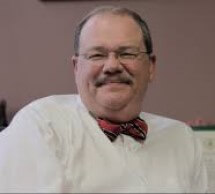
Joseph W. Booth
Lenexa, Kansas
Law Offices of Joseph W. Booth
ABA Family Law Section, Co-Chair of Publications Board
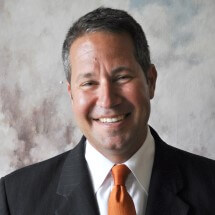
Scott N. Friedman
Columbus, Ohio
Friedman & Mirman Co., L.P.A.
ABA Family Law Section, Past Chair
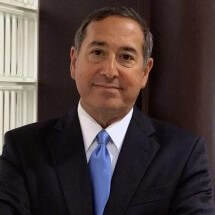
Stephen N. Peskind
St. Charles, Illinois
Peskind Law Firm, PC
ABA Family Law Section, Author
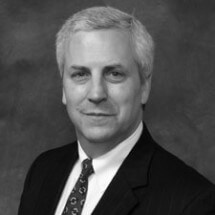
Barry L. Gold
Chattanooga, Tennessee
McWilliams, Gold & Larramore
TBA Family Law Section, Past Chair
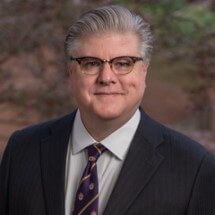
Miles Mason, Sr.
Memphis, Tennessee
Miles Mason Family Law Group, PLC
ABA Family Law Section, Author









